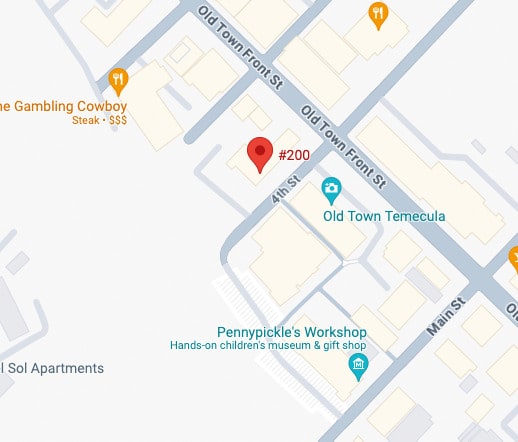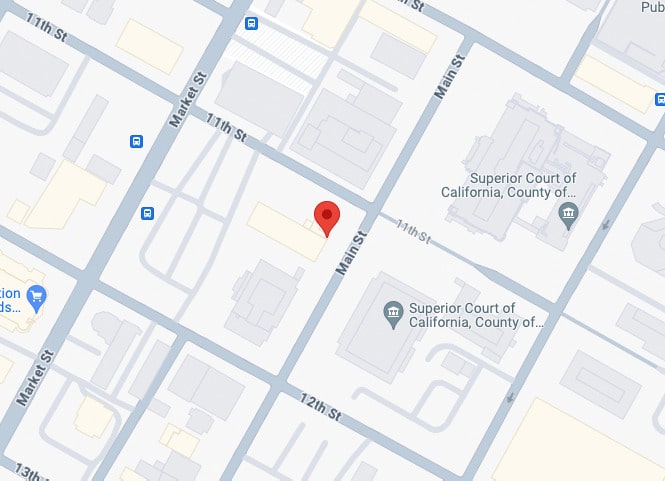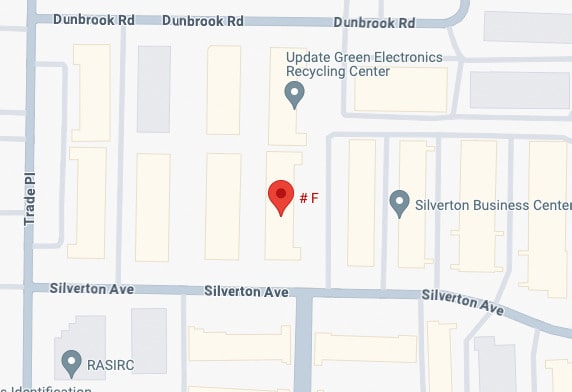The arrest of a loved one in Lakeside is a significant blow to the entire family. It becomes even more difficult if they remain in jail for too long. If your family depends on the arrestee, or if they play any other significant role, your family will suffer every minute they remain behind bars. Fortunately, you can help them post bail so they can return home quickly if they are eligible. The judge will set the amount and provide you with payment options to obtain their freedom.
Sometimes, bail is affordable, while other times, it is beyond your family’s financial ability. If your loved one’s bail is expensive, we can post a surety bond on their behalf at Justice Bail Bonds. We offer timely, straightforward, and reliable bail service.
What Happens After Arrest
If your loved one is caught in the act of crime or a judge issues a warrant for their arrest, the police will act swiftly to ensure they answer to their charges. An arrest is followed by booking, whereby the arresting officer notes down the defendant’s identifying details, case details, and any other information relating to the case. The officer will also take their fingerprints and mugshots for the police database. They will find the defendant’s criminal history before forwarding the gathered details to the prosecutor.
The prosecutor files charges in court immediately after receiving a defendant’s details from the police. In the meantime, the police will hold the defendant in jail to await their initial arraignment. Once the judge receives the filed case, they hold the initial hearing for the defendant to enter a plea. The outcome of this hearing will determine whether your loved one will stand trial or go straight to sentencing. The judge will discuss the bail matter if they enter a not-guilty plea.
While the judge always has the last say in bail matters and every other matter in a criminal court, they allow prosecutors and criminal attorneys to give their views. If your loved one has an attorney, the attorney can fight for the defendant’s release on personal recognizance or a lower bail. However, the prosecution can demand a higher bail, depending on the underlying charges and your loved one’s criminal history. Sometimes, the judge considers the bail schedule to make the final decision. Other times, they raise or lower the amount, mainly if aggravating or mitigating factors exist.
For example, if your loved one is a flight risk, has a severe criminal record, or has serious underlying charges, the judge can set a higher bail than the bail schedule proposes. However, the judge can lower their bail if your loved one has strong community ties or faces simple misdemeanor charges.
Posting a Loved One’s Bail
Once the judge sets the amount, they will inform the defendant how to make bail for freedom before trial. If a judge gives your loved one cash bail, you will pay their entire bail to secure their freedom. You must raise the whole bail, regardless of how expensive it is. This is the most significant challenge families face in situations like these. If your family struggles financially, you can raise funds from friends or sell some valuables to free the defendant. Once you make the payment, the court will release your loved one and keep the money until the end of their case. You will receive the bail money in full after the case.
If you cannot raise the entire bail, you can provide something valuable to the court to hold until your loved one’s case ends. The valuable property could be a vehicle, real estate, or anything valuable the court agrees to take as a property bond. You will receive the property back at the end of the case.
Alternatively, courts allow surety bonds posted by third-party companies on behalf of defendants. You can request a bondsman to help you post bail to free your loved one after arrest. Lakeside bail bonds are popular today. Most families resort to bail bonds after their loved ones' arrest instead of struggling to raise bail money on their own.
In addition to posting your loved one’s bail, you must encourage them to honor all court dates regarding their case. This is one of the bail conditions the judge will give during the first arraignment. It will ensure their case progresses well, with minimal delays and other legal issues. It will also ensure you receive the bail back at the end of the case.
Reasons to Choose Lakeside Bail Bonds
Bail bondsmen assist defendants in securing their freedom from jail for a small fee. Typically, you will obtain their service at a 10% rate. Some bail bonds offer lower rates than that. But you must carefully choose a bondsman to help you with your loved one’s bail. You only pay their fee after receiving help, after your loved one is freed from jail. Here are the reasons you should choose to work with a bondsman:
Bail Bondsmen Speed Up Bail Processes
When someone you love is in jail, you want to do everything possible to help them. Their freedom will bring them back home or reunite them with their loved ones, enable them to continue earning a living, and help them prepare well for the trial. However, you can prolong their time in jail if you take a long time to post bail. For example, if you must look for money to post cash bail by fundraising or selling valuables, they will be home later than they are. But bail bondsmen can speed up their bail process and free them within hours of arrest.
A Skilled Bondsman Will Handle The Documentation Better
Legal papers must be carefully prepared, filed, and handled. A mistake in handling them could worsen the situation, causing your loved one to spend more time in jail than they should. It helps to work with a skilled professional when handling bail matters to avoid making costly and regrettable mistakes. Bail bondsmen have the right skills and experience to handle bail matters. They know the proper documents to fill out and file and how best to handle these documents. Your loved one will likely enjoy a smooth bail process with the help of a professional.
You Can Save Money
If your loved one remains in jail for a long time, they are not able to work to earn a living. A quick release from prison will ensure they return to work sooner rather than later, reducing your family’s financial loss. Additionally, a bondsman only requires a small percentage of your bail money. If you receive Lakeside bail bonds for a 10% or lower rate, that is all you need to raise to help your loved one out of jail. It is small compared to what you could require to post cash bail. Bail bondsmen also allow flexible payments to families that cannot raise the full fee beforehand.
Bail Bondsmen Handle Everything On Your Behalf
If you are unfamiliar with the court process after an arrest, you have nothing to worry about if you have a bondsman by your side. The bondsman will handle everything on your behalf to ensure your loved one is home soon enough. Legal processes are complex. Instead of navigating it alone, you can allow a skilled Lakeside bail bondsman to help you with the bail process. Once they have your loved one’s details, they will take over to ensure the defendant is released with minimal delays.
Bail Bondsmen Remain Committed Even After Bail Release
The role of a bondsman does not end with the release of your loved one. They remain committed to your loved one’s case, at least until the end of their case. Your loved one will have someone to encourage and advise them as they attend the trial. The bondsman’s commitment ensures your loved one does not skip bail. Remember that skipping bail will be a terrible mistake that could result in their arrest, financial loss, and additional criminal charges. The bail bond’s commitment will also prepare your loved one for the uncertainty of a jury trial. Your loved one is helped to accept the judge’s final verdict, even if it does not favor them.
The Bail Conditions
The court requires defendants to post bail to guarantee their court appearances. In addition to paying bail, the judge gives defendants bail conditions to adhere to throughout the bail period. The bail remains in effect until the judge’s final verdict. Your loved one will receive some bail conditions to adhere to. You must assist and remind them of these conditions throughout the bail period to avoid additional legal problems. If they violate their bail, the judge can order their re-arrest. The judge can deny them bail once they are taken into custody for violating their bail. This means they will remain in jail until the end of their case.
Here are some of the bail conditions your loved one can receive after posting bail:
- To honor all court dates the judge will set regarding their case.
- To remain within the court’s jurisdiction until the judge issues a final verdict on their case.
- A stay-away order is required if the case is related to domestic violence and the victim is afraid for their safety or their loved one’s safety.
- To surrender any gun they have to the police, especially if the case is gun- or violence-related.
- To register for alcohol or drug treatment.
- To submit to random alcohol or drug tests.
- To undergo treatment for a mental disorder or undertake anger management classes.
- To remain under house arrest and wear an electronic monitoring device, especially if they are a flight risk.
- To install an IID system in their vehicle for DUI-related cases.
Failing to appear is a common way many defendants violate their bail. It is also a severe offense under the law, punishable by time in jail and a court fine. When you fail to appear for a scheduled hearing without a valid reason, the police will re-arrest and arraign you in court. The judge’s decision will depend on the underlying charges and your reason for failing to appear. In most cases, the judge will revoke your bail and order you to remain in jail until the conclusion of your case. The prosecutor will also file additional criminal charges for failure to appear.
Once the judge revokes your bail, the court will forfeit it. This means you will not receive a dime back after your case ends. The court will keep the entire bail. If you used Lakeside bail bonds to obtain your loved one’s freedom and they fail to appear, the bondsman will pay the full bail to the court. Your family must come up with full bail to pay the bondsman for their loss and service.
Your Role as a Cosigner
When behind bars, your loved one cannot do much to regain their freedom or prepare for trial. They will need your assistance finding and contacting a reliable bondsman to help them post bail. Therefore, you will act as their co-signer in obtaining Lakeside bail bonds. Your role as a co-signer entails looking for the right bail bondsman, negotiating for a favorable rate, and signing an agreement to start the bail process.
The bondsman will also need assurance that your loved one will not violate their bail. You must agree to work alongside your loved one after their bail release to ensure they honor all their court dates. You will also be expected to keep reminding them about what is at stake if they violate their bail. That way, the court process will proceed smoothly, and the bail bondsman can receive their money back after its conclusion.
You will also agree to pay the bondsman if your loved one violates their bail, resulting in bail forfeiture. Remember that when paying a surety bond, bail bondsmen promise the court the entire bail if the defendant fails to appear. The bondsman will incur a substantial loss when that happens. That is why they need a cosigner to bear that financial burden.
Your role as a co-signer is extensive, especially to the defendant. An arrest is difficult to bear when a person is alone without support. The support you give a loved one during the most challenging period of their life improves their experience. Your loved one is happy knowing that you are by their side, regardless of the legal matter they face.
Collateral for Lakeside Bail Bonds
The bondsman could require you to provide collateral to secure the bail bond service. Bail bondsmen ask for collateral to cover any losses they could incur if the defendant fails to appear and they lose the bail. If your loved one’s bail is expensive, that could result in a significant financial loss to the bail bondsman. That is why they could ask you to provide something valuable the bondsman can sell to recover the loss.
Typically, collateral refers to any property or assets you pledge as security for the bail bondsman’s help with your loved one’s bail. You provide collateral to demonstrate your loved one’s commitment to fulfill their obligation under the bail bond agreement. If your loved one fails to honor the end of their bargain, and the court keeps their bail, the bondsman can forfeit the collateral to recover their money.
Fortunately, bail bondsmen accept all collateral as long as it has a greater value than the defendant’s bail. Here are examples of collateral you can provide:
- Real estate property, including land, a house, or a commercial building. The bondsman will consider the property's value before accepting it as collateral. A real estate property’s value is usually based on its current market value and equity.
- Motor vehicles, including cars, boats, motorcycles, or any other valuable vehicle you or the defendant owns. After paying the defendant's bail, the car must have enough value to cover the bondsman’s loss. The bondsman will consider the vehicle’s condition, model, make, and resale value to determine its worth.
- Valuable items like precious metal, jewelry, art collections, and any other high-value asset you or the defendant have. The bondsman will determine its worth based on the item’s quality and market value.
Losing collateral to forfeiture can result in a significant financial loss to you or your family. But that is avoidable because you can encourage and support your loved one to honor all their court dates. The bondsman will return your collateral once the judge concludes their case and the court refunds your bail.
Jail and Court Information
Las Colinas
Corrections Department
Superior Court East County Division
Find The Right Bondsman Near Me
After your loved one’s arrest in Lakeside, you can help them secure their release so they can attend trial from home. However, there could be a problem if you do not have the financial ability to post their bail. Also, the legal process can be overwhelming if you are unfamiliar with court procedures. A reliable bail bondsman can help with the bail and the bail process.
We also support defendants facing trial by encouraging them to honor all their court dates at Justice Bail Bonds. We do all that at an affordable fee. You can rely on our bail service for the quick and timely release of your loved one from police custody. Call us at 714-541-1155 to learn more about our bail bonds service.









